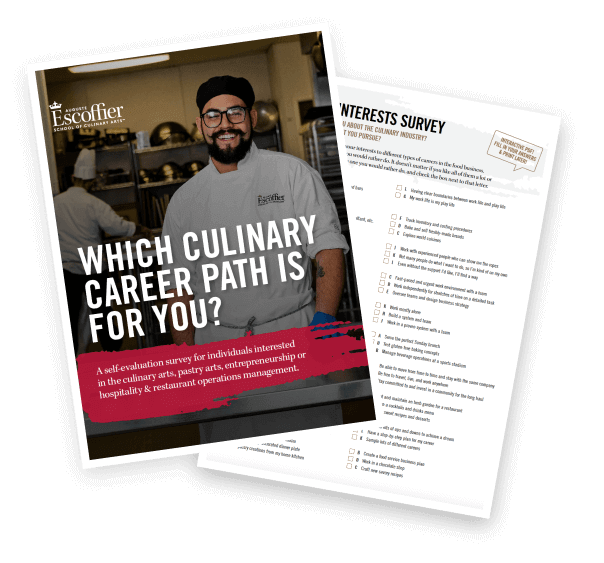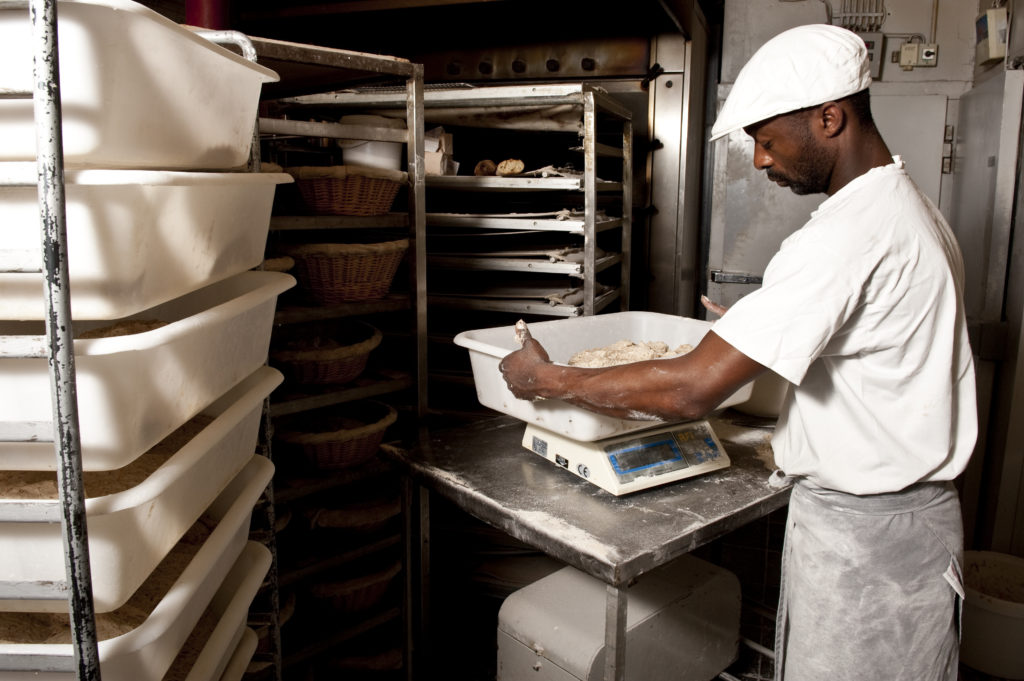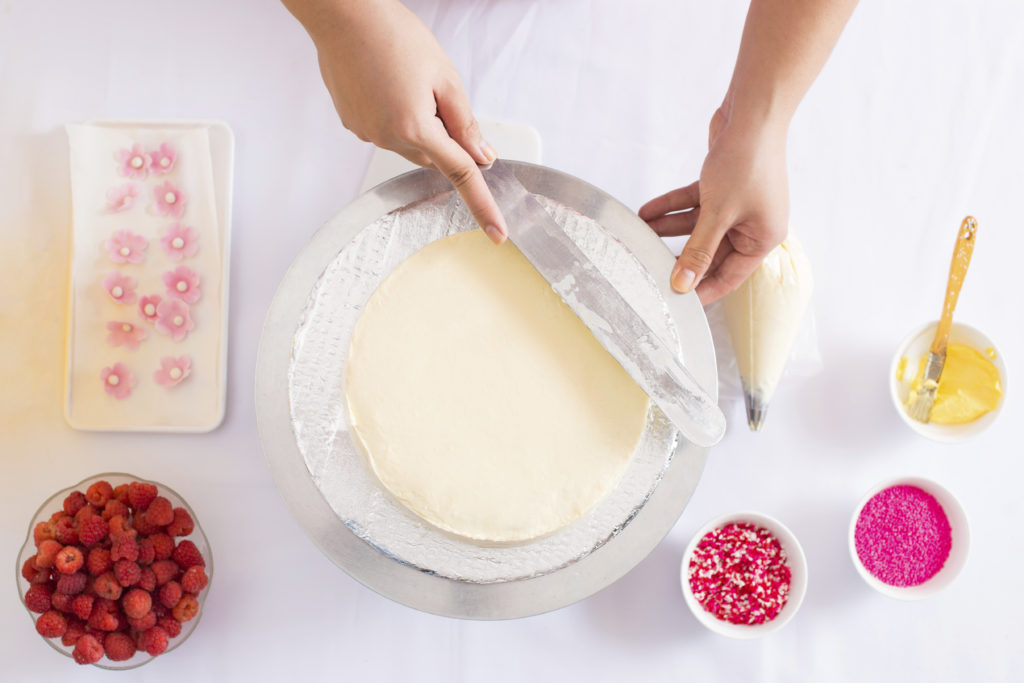In the kitchen, timing is everything. Hungry customers are waiting for their food, and the servers are trying to time the guest experience just right. One of the quickest ways to slow down the entire operation is to have a messy and disorderly kitchen.
Keeping an organized workspace can make each task faster, from prep to baking to plating. Careful consideration of layout, planning, and efficiency can be the difference between a good baker or pastry chef and a great one.
Fortunately, just like baking the perfect loaf, organization is a skill that can be learned. Here’s why order and structure are so important in the kitchen, and how you can improve yours.
The Value of an Organized Kitchen
How can the seemingly simple habit of organization have such a major impact on the restaurant, bakery, or pastry shop?
First, it improves efficiency. Proper layout ensures that you have what you need at hand, and aren’t running around the kitchen searching for cake pans or offset spatulas. The food industry moves quickly, so efficiency is important for your success.
Organization also makes the kitchen safer. When cooks have everything they need within arm’s reach, there’s less need for moving around. That means there will be fewer opportunities to run into someone and risk burns or cuts.
And finally, staying organized cuts back on waste, so it saves the company money. Have you ever started a recipe, only to realize halfway through that you’re missing a vital ingredient? That can happen in a commercial kitchen, too —- but at a much larger scale. And with the added efficiency, bakers can also time their tasks better and avoid the mistakes that come from rushing. No more wasting product because they tried to frost a cake that hasn’t cooled!
Organizational Tips
To keep an organized kitchen, start with the tools you use every day. That means having a home for everything, from knives to measuring spoons to raw ingredients. If the wooden spoons are always in the same place, no one has to waste time searching for them!
With perishables, practice a “First In, First Out” system. This method requires dating everything in the kitchen when it arrives, and rotating product, so the oldest items are always at the front of a shelf. With the oldest items at the front, you’ll use them first and prevent spoilage.
Another tip — keep the most common ingredients in your kitchen in the easiest-to-reach places. In a bakery, that means the flour, sugar, salt, vanilla, butter, eggs, and baking chocolate should be front-and-center in the walk-in or dry storage. The items you don’t use as often, like almond extract, dried fruit, and nuts, don’t need as prominent a position in the kitchen.
For storage, look for clear, stackable containers. While the containers may vary in size, pick a style with interchangeable lids to save time on matching bottoms and tops. Plus, stacking lets you take advantage of vertical space.
How Escoffier Students Keep an Organized Kitchen
Practical tips help, but organization in the kitchen also requires habits that are taught in culinary and pastry college.
The practice of mise en place is woven into the entire Auguste Escoffier School of Culinary Arts curriculum. This core concept refers to gathering all the tools and ingredients you’ll need to finish a dish at the very beginning, so you don’t need to leave your station.
For baking & pastry students, that includes weighing ingredients, assembling baking pans, and preheating the oven. This is a habit that graduates will bring with them to every culinary job throughout their careers.
Culinary school also builds the habit of preparation. Students are required to review their assigned recipes prior to class each day. This is to ensure that the students either understand the assignment, or are prepared with questions. Getting into the habit of studying a recipe before you start cooking prevents doing steps out of order, or not realizing you’re out of vanilla while the stand mixer is already going.
Students also learn the value of the production schedule. This is the order of operations required for the day to work efficiently. This can be as simple as:
- Bake cake
- While cake is baking, assemble buttercream.
Or, it could be a multi-item schedule with several steps, components, sides, and sauces, all of which have to be coordinated among a team. This is especially important in baking, where ingredients need to be added in a precise order, and many items have to cool before the next step can begin.
These pastry school habits will help students be more efficient and organized in their industry externships, where they’ll work in a real bakery, pastry shop, or restaurant. This experience shows students how their skills will apply to a business setting, and gives them important on-the-job training.

Take the Culinary Career Survey
We’ve compiled a checklist of all of the essential questions into one handy tool: career options, culinary interest surveys, educational opportunities, and more.
Start Learning!
Keeping an organized kitchen will help your business thrive, whether it’s a brick-and-mortar pastry shop or a cottage industry bakery out of your home. With the right training and experience, you can turn a love of baking into a rewarding and sustainable career.
Learning organization under the professional eye of Chef Instructors can make students more efficient and help them avoid bad habits. Start your education in baking & pastry at our Austin or Boulder campuses, or in your own home with an online pastry school.
If you’d like to read more about baking and pastry arts, try these resources next:
- 4 Tips for Opening Your Own Bakery
- Building an Online Pastry Shop
- What Is it Like to Be a Pastry Chef?
This article was originally published on March 19, 2014, and has since been updated.







